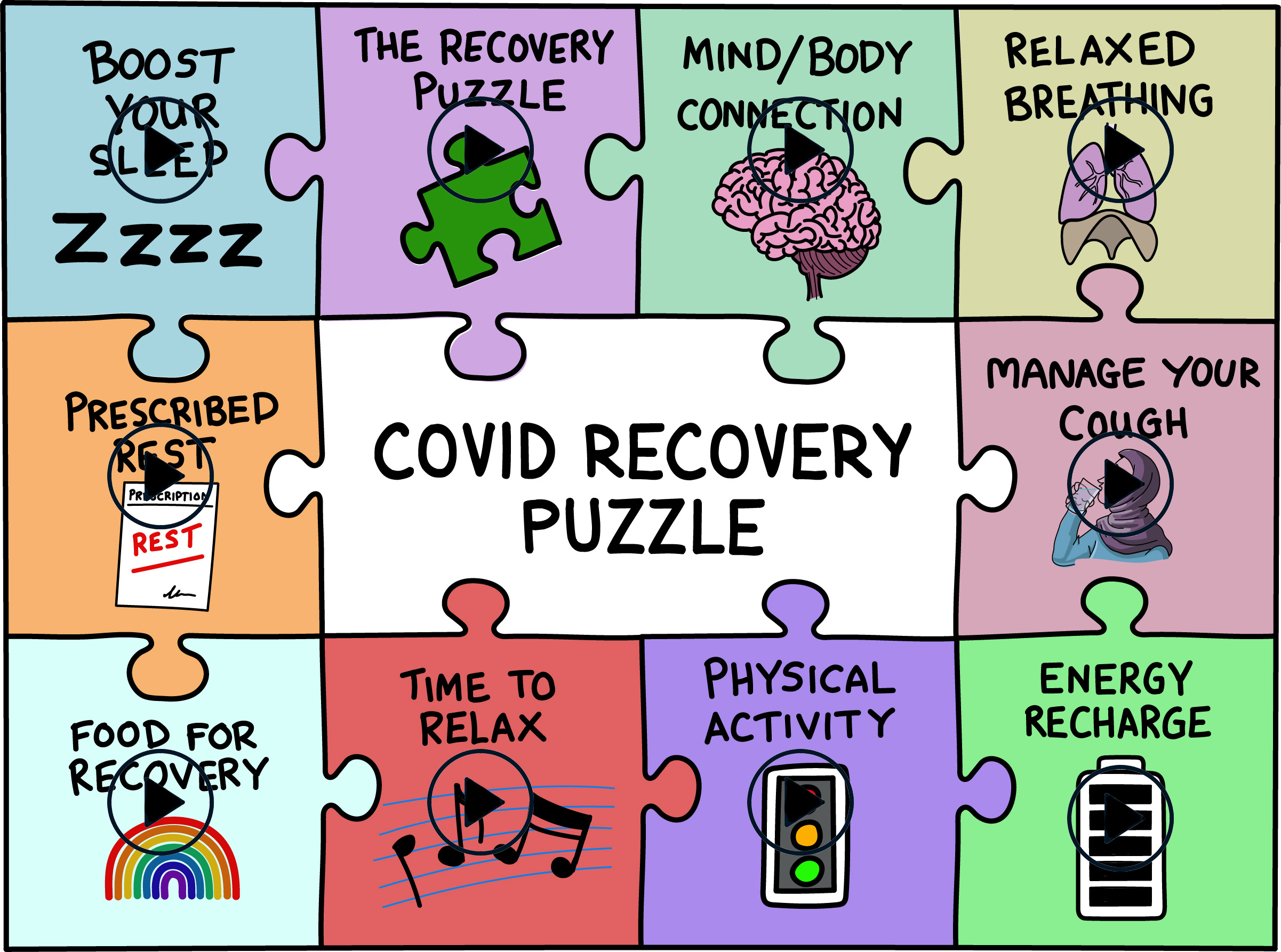What is long COVID?
Coronavirus (COVID-19) is the disease caused by the virus SARS-COV-2. It affects people in different ways and most people recover in the first three to four weeks. However, for some, symptoms can last for up to 12 weeks and sometimes even longer. This is known as ‘long COVID’.
People with long COVID report a wide range of symptoms that affect many parts of their mind and body. Sometimes, these symptoms are different from those people experience during the acute illness. Symptoms can be mild for some people, and more severe for others. They can also change over time.
The most common symptoms are:
- Fatigue or extreme tiredness
- Breathing difficulties and breathlessness
- Chest pain or palpitations
- Brain fog, difficulty concentrating and memory problems
- Aches or pain in various parts of the body and muscles
- Trouble sleeping
- Worry/anxiety
- Headache
Our understanding of COVID-19 and how to recover from it is improving all the time. Recovery is different for everyone. The information below has been created to give practical advice to help you recover from COVID-19 (or another flu-like viral illness) and prevent ongoing symptoms.
If you are experiencing new or worsening symptoms, or you have symptoms that have lasted for more than four weeks, it is important for you to seek medical help. There may be other things that could be causing your symptoms.
Contact your GP for support and advice. If you need urgent care call 111 or 999.

